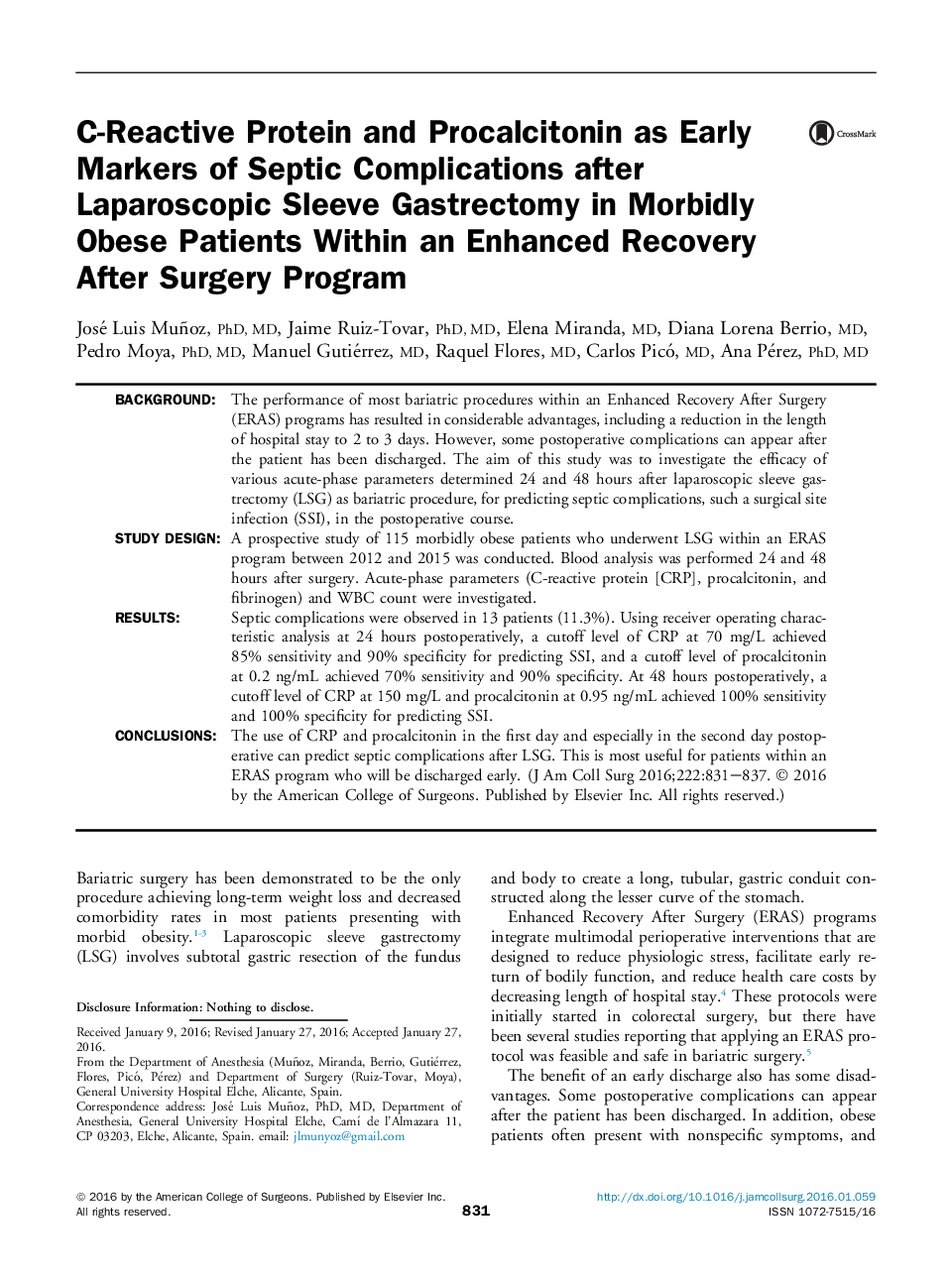| Article ID | Journal | Published Year | Pages | File Type |
|---|---|---|---|---|
| 4290654 | Journal of the American College of Surgeons | 2016 | 7 Pages |
BackgroundThe performance of most bariatric procedures within an Enhanced Recovery After Surgery (ERAS) programs has resulted in considerable advantages, including a reduction in the length of hospital stay to 2 to 3 days. However, some postoperative complications can appear after the patient has been discharged. The aim of this study was to investigate the efficacy of various acute-phase parameters determined 24 and 48 hours after laparoscopic sleeve gastrectomy (LSG) as bariatric procedure, for predicting septic complications, such a surgical site infection (SSI), in the postoperative course.Study DesignA prospective study of 115 morbidly obese patients who underwent LSG within an ERAS program between 2012 and 2015 was conducted. Blood analysis was performed 24 and 48 hours after surgery. Acute-phase parameters (C-reactive protein [CRP], procalcitonin, and fibrinogen) and WBC count were investigated.ResultsSeptic complications were observed in 13 patients (11.3%). Using receiver operating characteristic analysis at 24 hours postoperatively, a cutoff level of CRP at 70 mg/L achieved 85% sensitivity and 90% specificity for predicting SSI, and a cutoff level of procalcitonin at 0.2 ng/mL achieved 70% sensitivity and 90% specificity. At 48 hours postoperatively, a cutoff level of CRP at 150 mg/L and procalcitonin at 0.95 ng/mL achieved 100% sensitivity and 100% specificity for predicting SSI.ConclusionsThe use of CRP and procalcitonin in the first day and especially in the second day postoperative can predict septic complications after LSG. This is most useful for patients within an ERAS program who will be discharged early.
